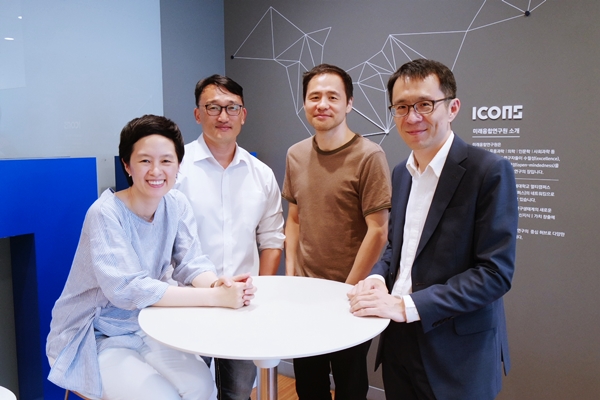Yonsei University opens nation’s first ‘convergence study of medicine and society’ subject
Does a woman with a patriarchal husband have higher blood pressure than a woman who doesn’t?
How do friends affect my health?
Personal health is not only a personal problem but can also affect his or her relationships with people and society. Well-known risk factors for disease, such as stress and smoking, can also be caused not only by personal choices but also by environmental or societal factors. However, few studies examine health by “blending” various environmental factors because it requires a complex, multidisciplinary approach.
To celebrate the 60th anniversary of Severance Medical School and Yonhi College’s integration, six professors from Yonsei University and Yonsei University Health System have provided a forum for worrying about healthcare and social issues together. It is against this backdrop they gave birth to a new subject -- medicine and society convergence research.
Undergraduate and graduate students majoring in various studies, including sociology, sports industry studies, communication studies, medicine and physical education, form teams to come up with research ideas. Professors had also made the students write papers by analyzing cohort study materials performed by the medical school and college of social sciences.
Participating teachers are Professor Yeom Yoo-sik of Sociology Department, Professor Kim Hyeon-chang of Preventive Medicine and Public Health, Professors Kim Chaung-oh and Rhee Yu-mie of Internal Medicine Department, Professor Kim Yong-chan of Media and Public Relations Department, and Professor Jeon Yong-kwan of Sports Industry Studies.

These professors met at the Institute of Convergence Sciences (ICONS) established by Yonsei University in 2013. Though they are masters at conducting established forms of research, doing research that converged various studies like fundamentals and application, civilization, society, nature was no easy task. They said they wished they had begun convergence research earlier.
To ensure that their juniors don’t experience these regrets, they joined forces, and its result was the birth of “medicine and society convergence research” subject.
“When we first opened the class, we told students that we wanted them to present papers that were more than poster presentations when the semester ends,” Prof. Kim Hyeon-chang said.
“We spent the first few weeks introducing each of our research projects and assigned students to present ideas about convergence research. We divided the class into six teams and met with each group several times to help them select appropriate subjects. Before we knew it, they began conducting their research.”
That is, students selected topics and researched them spontaneously while professors only played a guiding role.
Prof. Rhee said, “Voluntary subject selection sets out class apart from others. Each of the six professors provided individual instruction to his or her team and made mid-term presentations. Subjects shifted from initial ideas, but the degree of completion of each project has increased further.”
However, the class was an entirely new experience even for the veteran professors, who found it not easy to guide the students. As six professors teach one class simultaneously, it was hard to set school hours. So they set the class time at from 6 p.m. to 9 p.m., the time when the professors completed all other lectures. After-class discussions often ran past midnight. They also worried over how to instruct deviating students and giving grades.
“We decided to do everything together from the start. As we made it our goal to produce research results, the class was significantly different from regular lectures,” Prof. Yeom said. “So we had to adjust a lot of things. It was basically like teaching a class on top of a class, which is why we set class time as 6 p.m.”
Professors and students alike invested double the time and passion over other classes, but everyone agreed it was a pleasant experience. The professors say they can’t forget the day of poster presentations when students introduced their research results with confident looks and voices.
“I didn’t have enough time and feared to teach outside my expertise,” Prof. Rhee said. “I felt more mental pressure than physical difficulties. Everyone came in with different experience levels, including undergraduates who had never done analytical research. Differences arose, and leadership was crucial. Watching the presentation results, however, I realized all students improved immensely from when they began.”
Prof. Jeon Yong-kwan said he learned a great deal by participating in the conversion class. “Having six professors simultaneously teach one class is not easy to do, but I didn’t feel it was particularly challenging,” he said. “I thought students could be exposed to high-level convergence research, and we (professors) also learned from one another while teaching. It was a good experience for us, too.”

